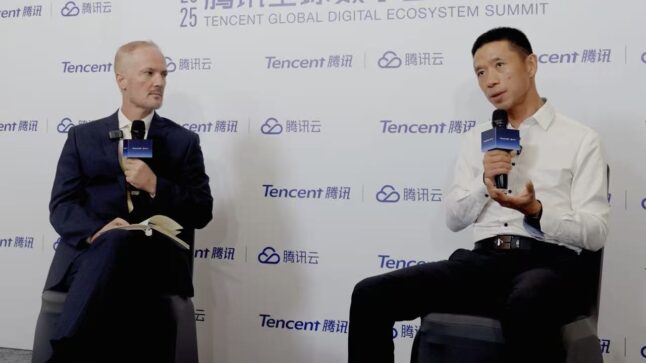At the recent Tencent Cloud International Summit in Shenzhen, I sat down with Vice President Karl (Huabin) Xu. He has been a key leader in Tencent Cloud’s recent international push. He is a great guy to talk to about the globalization of Tencent Cloud. I’ll go through most of that in Part 2.
First let me go through some of the latest news and updates for Tencent Cloud.
Announcements and Updates from the Tencent Cloud Summit
Most of the announcements at the summit were about:
- The expansion of Tencent’s global cloud infrastructure.
- Upgrades to their products, especially with GenAI.
In terms of infrastructure, they announced new Availability Zones in Osaka and Saudi Arabia. And they now have 9 global technical support centers and 11 regional offices. Basically, they are expanding steadily in both global infrastructure and supporting services.
Product announcements include:
- Upgrades to their big foundation models, especially Hunyuan. They specifically announced Hunyuan 3D 3.0, a next-generation 3D generation model.
- Lots of upgrades to their small models.
- With more models being made open source.
- And increased multimodal capabilities.
This slide from the morning presentations is a really good summary of all this. You can see both infrastructure / support services and product upgrades (database, big data, audio & visual)
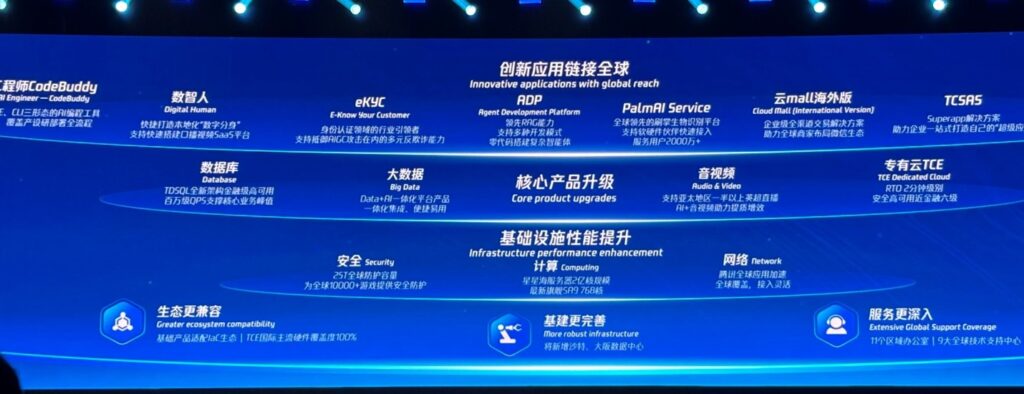
They also announced some operating results for international cloud for the year:
- Double-digit revenue growth.
- A doubling of the number of overseas clients.
- Tencent Cloud now has +10,000 foreign clients.
- That 95% of Chinese gaming companies going overseas are using Tencent Cloud.
- That 90% of Chinese companies going overseas are using Tencent Cloud.
That’s all good. Plus…
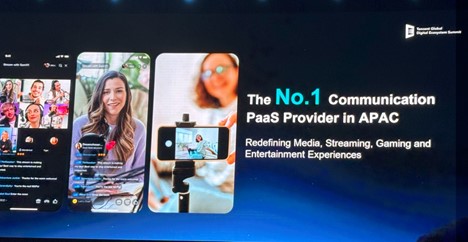
And they listed some of their overseas clients.
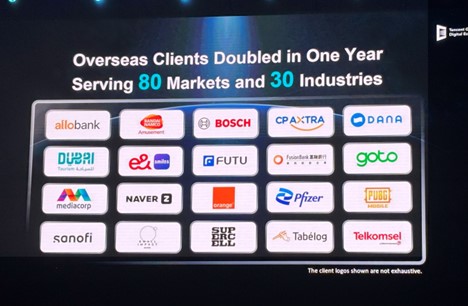
The overseas clients that I am keeping an eye on are:
- Orange in MENA
- CP Axtra in Thailand
- Faithia in the US
- Dana in Indonesia
- Kakaku and forGIFT in Japan
- And, of course, GoTo in Indonesia
Finally, here are a couple of the cooler apps (in my opinion) that they cited.
Digital Avatars. Dowson Tong (CEO of Tencent Cloud and Smart industries Group) did a presentation with a digital avatar. These are getting much more interesting.
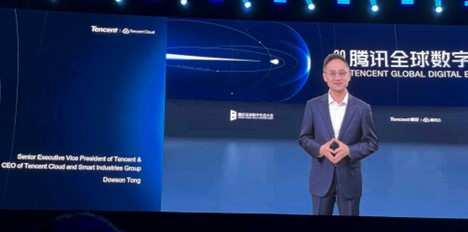
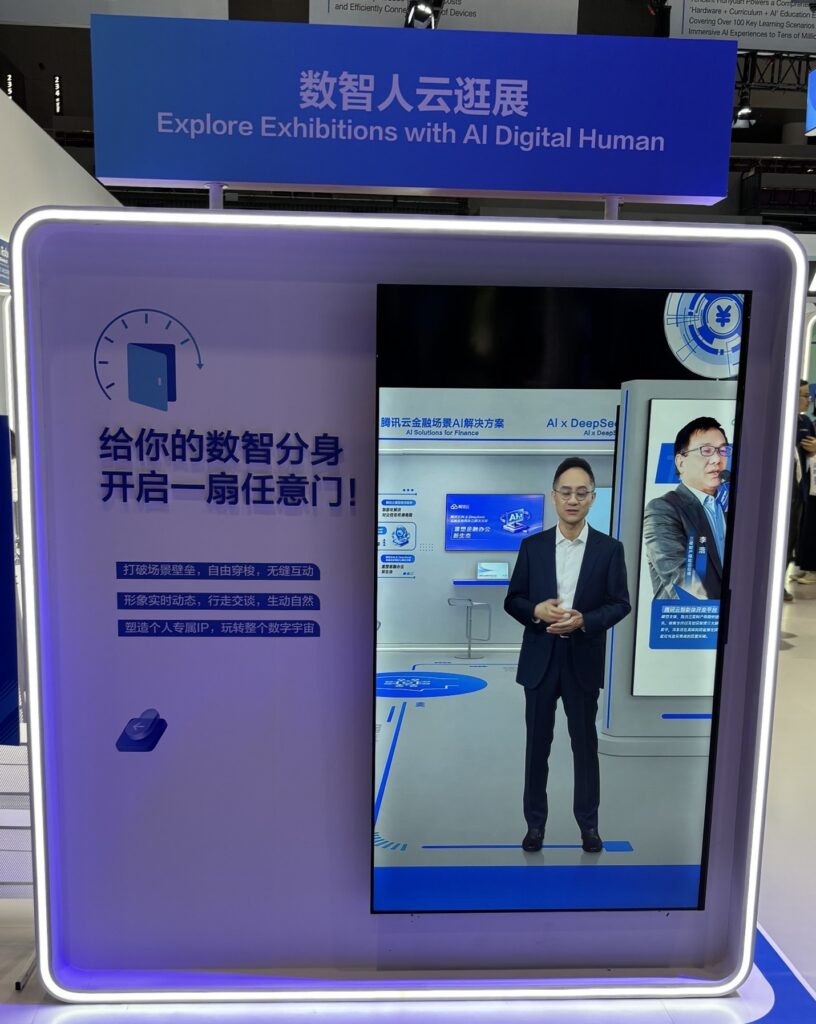
E-Sign Service – which I am definitely going to use.
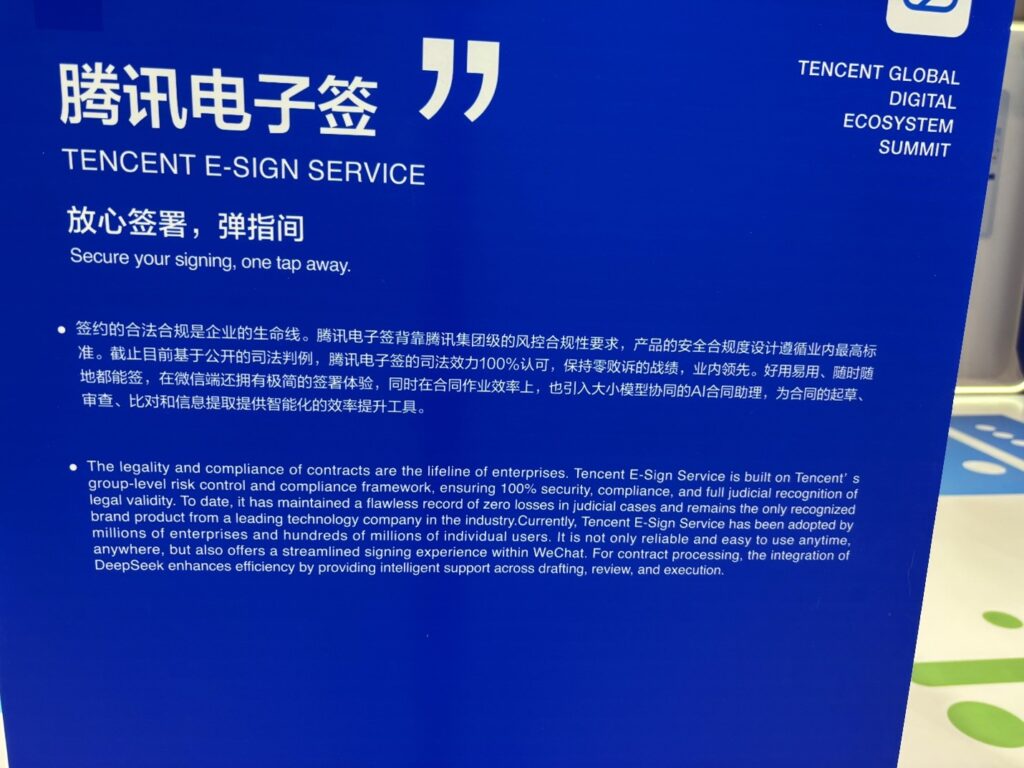
Tencent Meeting. Their meeting app has been making steady advancements in the past year. Lots of new tools for noise cancellation, speaker identification and translation. Their Audio & Visual products are going international particularly well. More on this below.
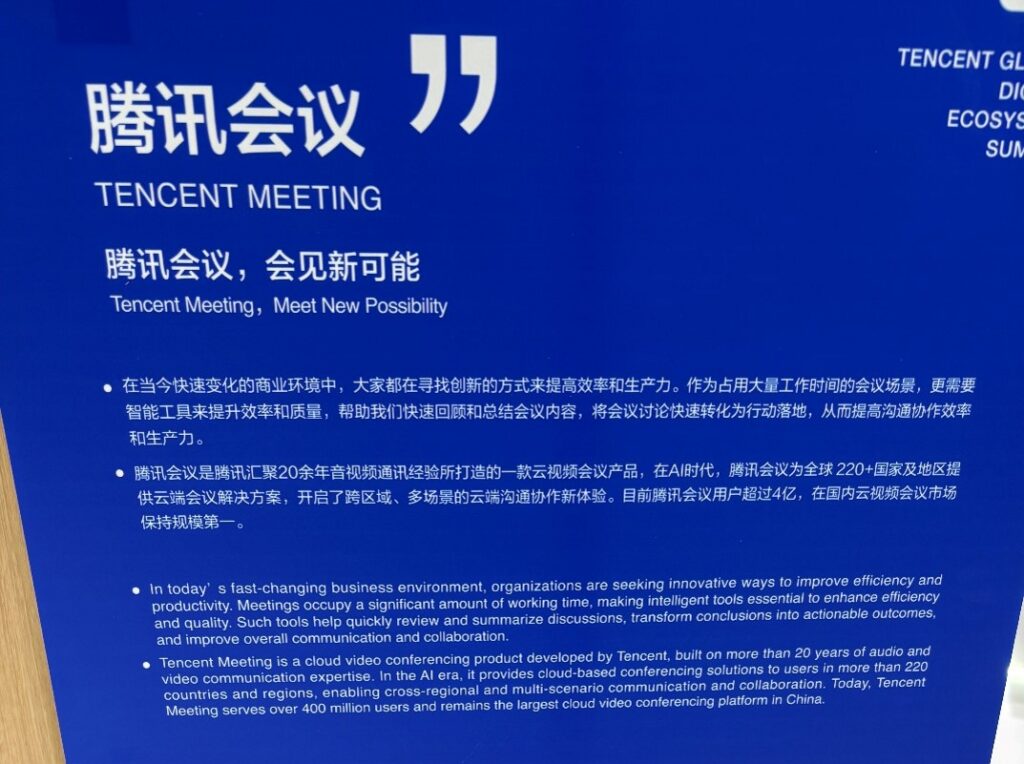
Ok. Those are the announcement that got my attention.
Here is a quick summary (in my opinion) of how Tencent Cloud’s is going international.
Tencent Cloud Is Going International with Both Products and Cloud Services
WeChat had a big international push back in 2013-2015. Then the approach was to get consumers across Asia and Europe onto WeChat. Those were the land rush days of instant messenger. The international push mostly didn’t work out. And now Asia and Europe mostly stuck using WhatsApp, which is pretty terrible compared to WeChat.
But now Tencent Cloud (and WeChat) are going international with a focus on products and tech / cloud services, mostly for businesses. That’s an interesting contrast. The focus is much more on providing infrastructure and associated products / services. This includes helping overseas businesses develop their own WeChat-like SuperApp services.
The international push also focuses on serving Chinese companies going global. Almost across the board, leading Chinese companies are looking for growth overseas, especially in Asia and Europe. But going international is difficult, especially for those that don’t have a history of international operations. Tencent Cloud is positioned as a great partner for this. Here’s the services they provide for Chinese companies going global.
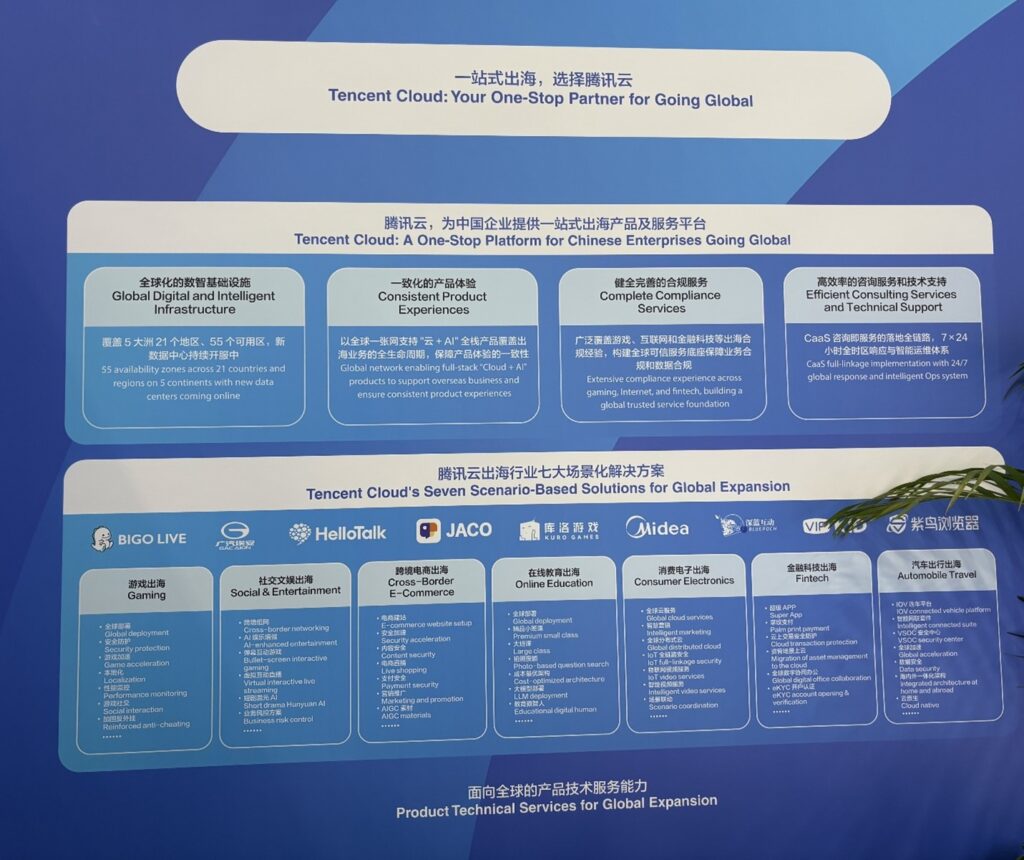
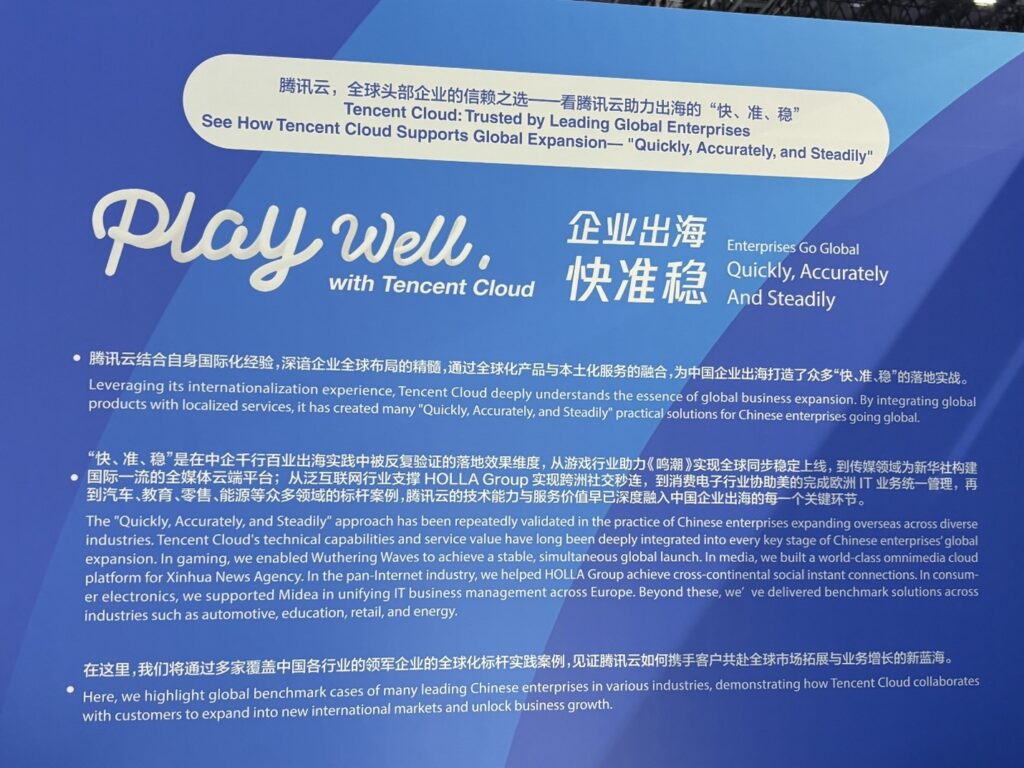
Within this, 3 verticals, beyond basic cloud services, got my attention.
#1: Gaming
Unsurprisingly, Tencent Cloud is leading with gaming. Tencent is the global giant of gaming and they are experts in the specific requirements of gaming cloud infrastructure.
- Games are usually released and played internationally. So, you need global cloud infrastructure.
- Games usually require a lot of compute and bandwidth.
- Games are fast moving and highly interactive, so you need low latency.
- GenAI has lots of emerging use cases within gaming.
Overall, Tencent Gaming Cloud is really well-positioned here. Just for fun, here’s the booth from the exhibit.
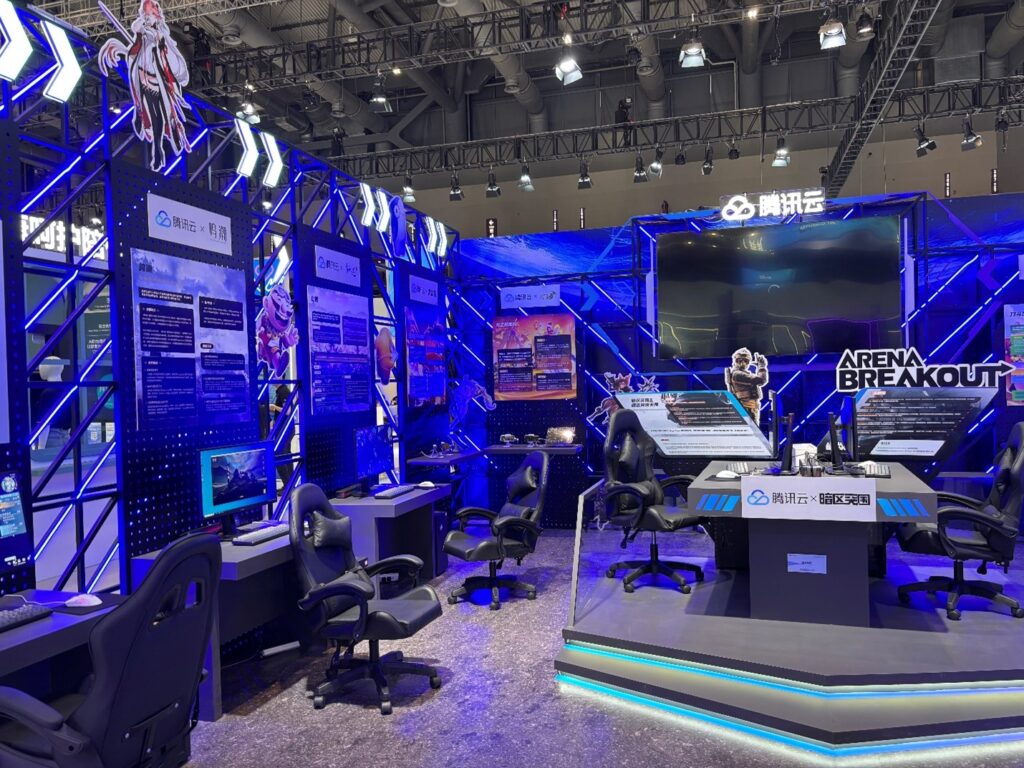
#2: Audio & Visual. Including Communications and Smart Entertainment
As mentioned, audio, video and communications has a surprisingly compelling set of use cases for firms operating internationally.
Tencent Cloud is doing well with its ability to provide stable, low latency, low bandwidth and scalable video services. Such as for live broadcasting (think esports).
Stable and reliable audio & video is also important for regular business functions, such as conference calling. I previously mentioned Tencent Meeting as a really interesting service.
Tencent Cloud Media Services is another interesting service in this area. Especially for SMEs in entertainment and education, who are concerned about being limited by the bandwidth of local carriers.
Overall, audio & video services are a compelling wedge service for lots of geographies. And they naturally lead to increasing digital storage on the cloud.
Here are some of Tencent Cloud’s solutions in this area:
- Tencent Real-Time Communication (TRTC). This is a low-latency platform for audio / video calls and interactive live streaming. It supports multi-person voice / video interactions with an average end-to-end latency below 300ms. It offers robust performance under high packet loss (80% for audio, 70% for video).
- Cloud Streaming Services (CSS). This is a professional live streaming solution offering Live Video Broadcasting (LVB) for large-scale playback and Live Event Broadcasting (LEB) for ultra-low latency (800ms end-to-end).
- Tencent Cloud Online Video Platform (TOVP): This is a SaaS solution for multi-screen video streaming, integrating live streaming, VOD, and interactive video. Think Sports Broadcasting (high-concurrency live events with millions of viewers) and Corporate Media (publishing training videos and news globally).
- Video and Media AI Solutions. This leverages Tencent’s AI expertise for advanced video processing, content moderation, and creation. Think real-time subtitle extraction, translation, and voice cloning for short dramas and live broadcasts.
And, just for fun, here is the booth for Smart Media.
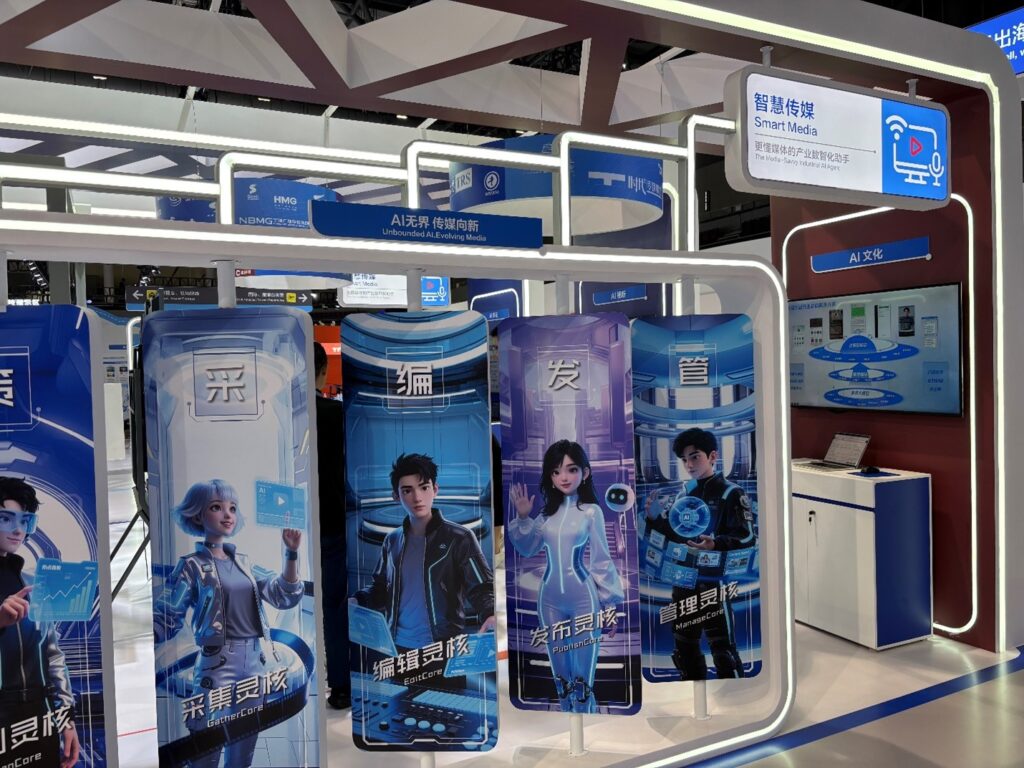
#3: SuperApp as a Service
Ok, this is my favorite product.
Businesses around the world have been trying to replicate WeChat for like ten years. And nobody has really succeeded.
Messengers, payment and digital wallets are now common in most regions. But nobody has been able to replicate the entire WeChat super-app offering. That requires mini-programs, mini-games, short video, search and may other features. WeChat is still the world’s only full Super App.
But now Tencent Cloud is offering SuperApp as a Service (which really should be called SaaaS). They are helping overseas clients develop mini programs and other types of SuperApps. That’s a great idea. Tencent is the world’s expert at aggregating web and mobile apps into lightweight mini programs, that are deployable on any cloud infrastructure. And them providing a seamless, super app-like experience.
An example of this is Tencent Cloud’s project with Orange Middle East and Africa (OMEA). They are enhancing Orange’s Max it app. Starting in the second half of 2024, Orange MEA has been integrating mini apps, with plans to onboard 100 global and local partners in 2025. These mini-apps cover:
- Utilities (e.g., bill payments)
- Lifestyle services (e.g., food delivery, ride-hailing)
- E-commerce (shopping platforms)
- Entertainment (content streaming, gaming)
- Financial services (mobile payments, banking)
Below is a good summary of SuperApp as a Service.
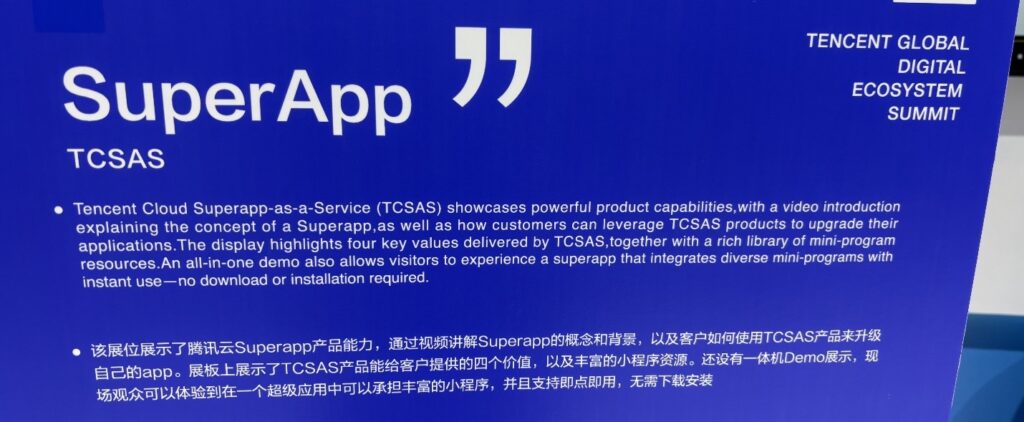
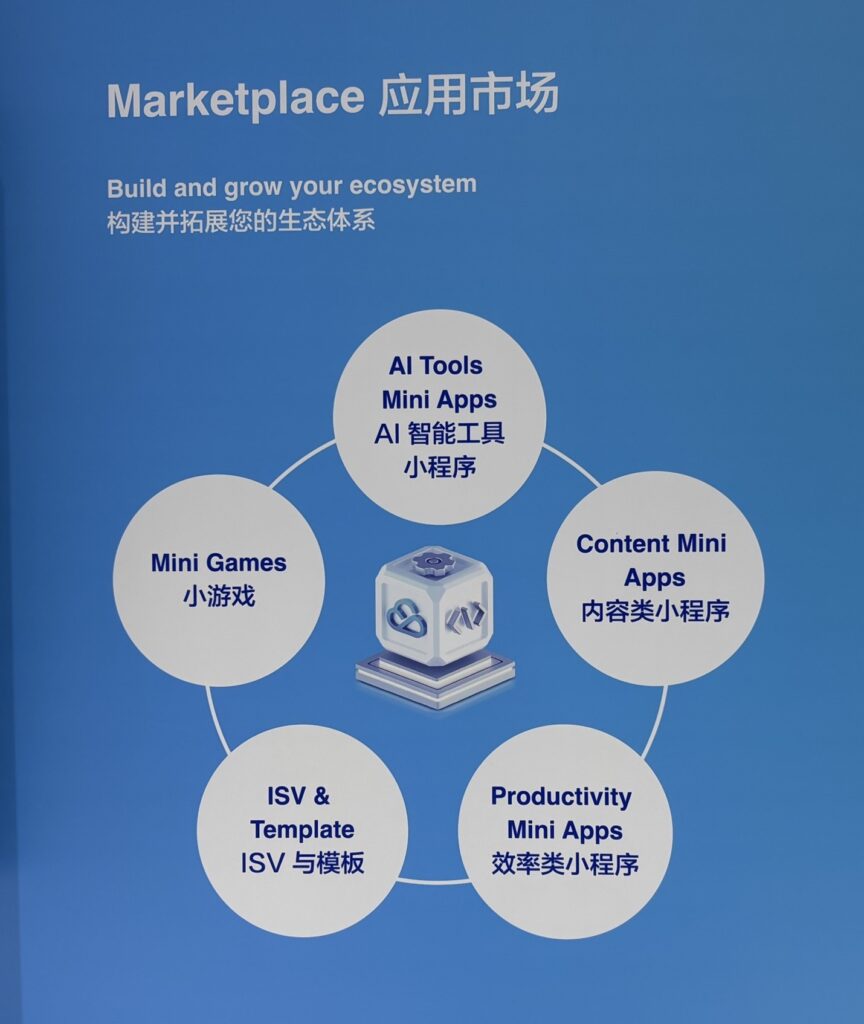
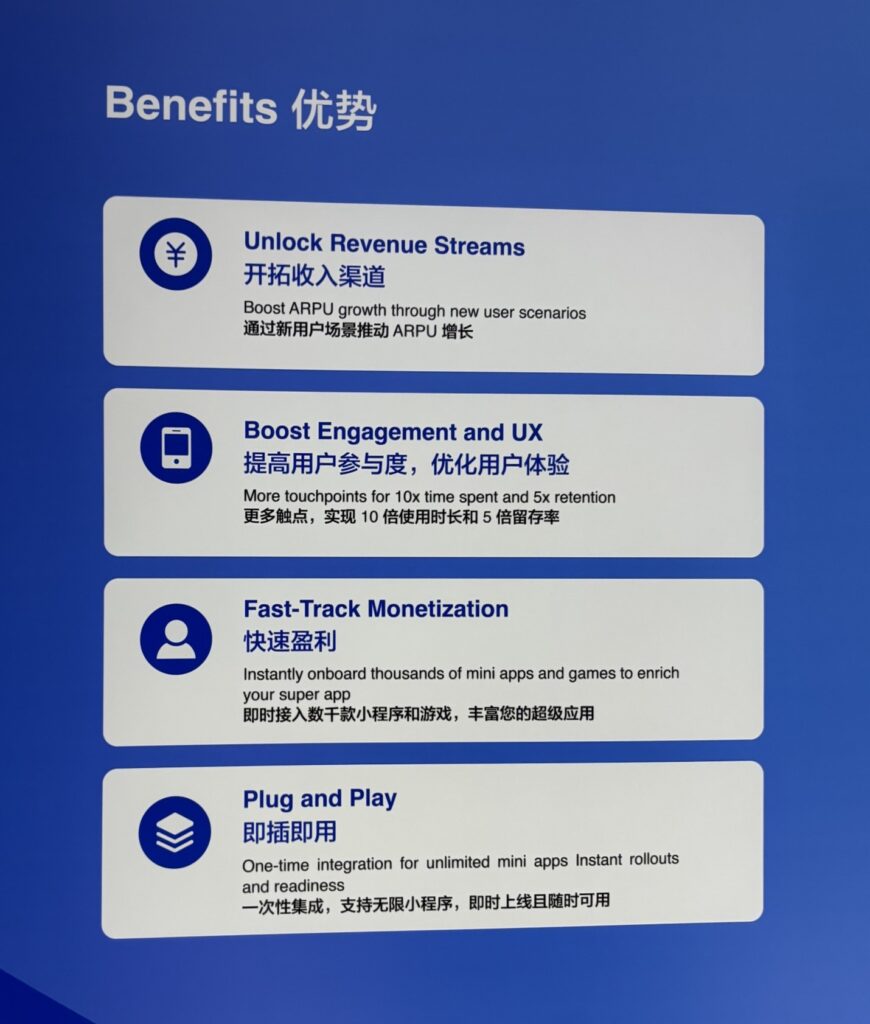
Ok. That’s it for Part 1 and the basics of Tencent Cloud going global. In Part 2, I’ll cover my interview with VP Karl Xu.
-Jeff
——–
Related articles:
- Two Lessons from My Visit to Tencent Cloud (1 of 2) (Tech Strategy)
- Tencent Cloud and Mini Programs Go International. Lessons from My Visit to Tencent HQ. (2 of 2) (Tech Strategy)
- How Amap Beat Baidu Maps. My Summary of the Alibaba Playbook. (Tech Strategy – Podcast 252)
- Scale Advantages Are Key. But Competitive Advantages Are More Specific and Measurable. (Tech Strategy)
From the Concept Library, concepts for this article are:
- AI
- Cloud
From the Company Library, companies for this article are:
- Tencent Cloud
———-
I am a consultant and keynote speaker on how to increase digital growth and strengthen digital AI moats.
I am the founder of TechMoat Consulting, a consulting firm specialized in how to increase digital growth and strengthen digital AI moats. Get in touch here.
I write about digital growth and digital AI strategy. With 3 best selling books and +2.9M followers on LinkedIn. You can read my writing at the free email below.
Or read my Moats and Marathons book series, a framework for building and measuring competitive advantages in digital businesses.
I am the founder of TechMoat Consulting, a consulting firm specialized in how to increase digital growth and strengthen digital AI moats. Get in touch here.
I write about digital growth and digital AI strategy. With 3 best selling books and +2.9M followers on LinkedIn. You can read my writing at the free email below.
Or read my Moats and Marathons book series, a framework for building and measuring competitive advantages in digital businesses.
